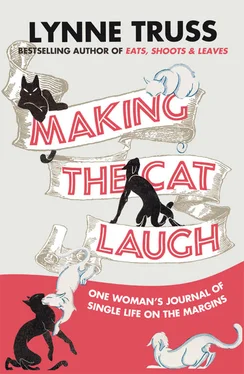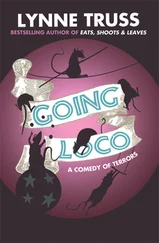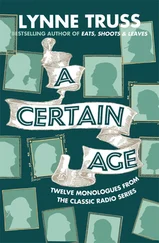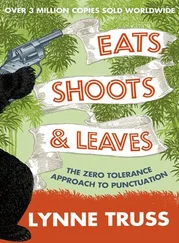I wonder whether people parade their marital misery because they are proud of it. At traffic lights, you can always see couples in cars staring out in different directions with their mouths set rectangular like letter-boxes, and with a small thundercloud visible above their heads. You will have noticed also how those cheerful ‘Bob and Sandy’ windscreen stickers have largely disappeared, which is something I take personal credit for. I kept knocking on the glass and saying, ‘Hey, cheer up, Bob, you’ve got Sandy,’ and ‘Cheer up, Sandy, you’ve got Bob,’ until they took the stupid things down and cut them in half.
So if I tend to avoid dinner parties, it is not because I am afraid the couples will canoodle in front of me, but because the couplesome strangers Derek and Jo need only exchange a private hostile glance over the sage derby and I start to panic on their behalf. It is not happy, this Derek-and-Jo; it will split up; its Derek-and-Jo kiddies will suffer. I turn into a kind of Cassandra, prophesying the sooner-or-later catastrophe of Derek-and-Jo with a forlorn certainty, usually even before they have reached the front gate and started arguing.
It is a heavy burden: to see the inevitable with such clarity. ‘See the cracks!’ I moan inwardly (after some ritual ‘who’s driving?’ fracas after pudding). ‘Oh, woe! Hear the marital fabric split and rend, stitch by stitch verily from top to bottom! Weep, ye marrieds! Weep!’ It is an odd way to behave in a Crouch End dining room, but of course nobody listens anyway. Or if they do, they probably put it down to personal disappointment.
This fatalism seems to be the worst aspect of being single; it gives you a cranky view of the world. You have heard of ex-hippies who advocate trepanning as the answer to everything (drill a hole in your skull to let off steam)? Well, I am quite similar, only I think everyone must tear up the marriage lines or sell the double bed, or for heaven’s sake quit moaning. As you can imagine, this makes me pretty useless as an adviser when relationships hit stormy seas, since my suggestions are always equally radical and precisely the same.
‘I think he’s seeing another woman, but I can’t believe it’s true,’ sobs a friend, desperate for support. ‘Split up,’ I advise, promptly, ‘and make sure you get the tumble drier.’ ‘I am in such turmoil,’ says another. ‘My wife wants to have a baby and the idea makes me dream about being eaten alive by a big hairy mouth with teeth in it.’ ‘Mmm,’ I say thoughtfully. ‘Have you considered going your separate ways?’ On Radio 4’s comedy news programme On the Hour the other day, I heard: ‘A palace spokesman has today confirmed that Prince Harry is to split up,’ and I automatically thought ‘Good idea; best thing’ before seeing the joke.
The thing is, coupledom is a bit like childbirth; a week after it’s finished, you can’t imagine what it was like, or how you got into it. This is the gulf between single people and couples, and between the different bits of one’s own life. One minute you are Derek-and-Jo; the next you are Derek or Jo. And in each state you can’t imagine the other. I have spent about 80 per cent of my adult life in proper committed long-term relationships, yet at the moment all I can clearly remember is that I once startled my boyfriend by asking, out of the blue: ‘Why aren’t you a pony?’
This ‘Why don’t they split up?’ syndrome is not sour grapes, I promise. It is not even cynicism. It is just an unanswerable point of view, similar to a religious conviction. The only trouble with this particular panacea (like trepanning) is that once you have done it, you can’t do it again. Consequently its evangelists cannot follow their own advice. What do trepanners do when they are depressed? If they kept drilling holes in their heads, they would risk being mistaken for patio strawberry-planters.
Similarly, once you have split up you can’t keep doing it, unless of course you are a simple organism like an amoeba. So it is quite ironic, really. Here I am, advocating the new revolutionary pluck-it-out, cut-and-run approach to personal happiness, while at home I am gradually learning how to patch things up.
One of the more difficult things to accept about being newly single is that there is no one to strike chore-bargains with. You know the sort of thing: ‘If you do the breakfast, I’ll take the bin out’; ‘I’ll get the milk, you get the papers.’ Make such fair’s-fair suggestions to a cat, I find, and it will just look preoccupied, and suddenly remember an urgent appointment outside.
The beauty of efficient teamwork is that it cuts through the grease and grime of household activity with a brisk one-two, reminiscent of the old telly adverts for Flash. Wisshh, woossshh, all done. ‘You make a cup of tea, while I lie full-out on this sofa, preventing it from bucking up and killing somebody.’
Jobs that can’t be tackled simultaneously stretch out instead in long miserable single file, like prisoners on a chain-gang, and are dealt with on the weary principle of one-damn-thing-after-another. The plodding linear quality is depressing. Sometimes you forget, of course, and glance optimistically at the bin, fleetingly wondering whether someone else has taken out the rubbish. But they usually have not. The cheerful midnight pixie with bucket and mop is a sweet and potent myth, but it is cruelly misleading.
Looking on the bright side, however, there is great consolation in the knowledge that the Mr Nobody who takes out the bin is also the Mr Nobody who moves things around so that you can’t find them. Take the TV remote control, for example. In my old cohabiting days, how many times did I search frantically among sofa cushions for it, knowing in my heavy heart that it was probably travelling anti-clockwise on the M25 by now, snug in a coat pocket on the back seat of the boyfriend’s car? Living alone, then, it is no wonder you rejoice that things remain precisely where you left them. You feel a great warmth inside on the day you realize that if you haven’t finished the marmalade, there is still some marmalade left. The only interference I have experienced since living alone was when I emerged from the bath one day to discover the word ‘trhjwqxz’ on my otherwise blank word-processor screen. I gulped, and stood stock still for a minute, feeling the pulse race in my neck. And then I realized that a cat had made a dash across the keyboard.
I mention all this because last week I left a friend alone in my flat for a couple of hours, and when I came back I realized I could retrace virtually every moment of his stay, just by observing all the things he had moved from their usual places. The loo seat was up. A plate with toast crumbs awaited me on the draining-board, along with a knife tinged with Marmite. A couple of inches of wine had gone from an opened bottle, and a glass with dregs in it was rolling on the living-room floor. A book had been replaced in the wrong position on a shelf, a window opened (and not closed again), the backdoor key hidden so successfully it took me two hours to find it. I moved stealthily around the flat, feeling a bit like Sherlock Holmes on the trail of exotic cigar-ash. ‘He’s been here, too!’ I whispered excitedly. ‘See, he has moved these cassettes!’ Thank goodness I didn’t have a magnifying-glass, or I would have been down on the carpet, observing the pile for footprints.
I felt proud and irritated in equal measure: proud that I can now (like Holmes himself) detect the tiniest variation in the depth of dust on a pile of Radio Times; irritated for obvious reasons (mainly to do with washing up). But there was something rather macabre about this Do Your Own Forensics activity, and eventually I stopped thinking about it. The idea of living alone is somehow quite closely associated with the idea of dying alone, too; and I didn’t want to think about the giveaway clues packed into my own day-to-day life. ‘We found a half-eaten jar of pickled onions next to the bath. She had fed the cats but not washed the spoon. A little Post-It note was attached to the bin, with the mysterious words ‘‘I suppose it’s my turn again?’’ written on it in big wobbly capital letters, underlined.’
Читать дальше












